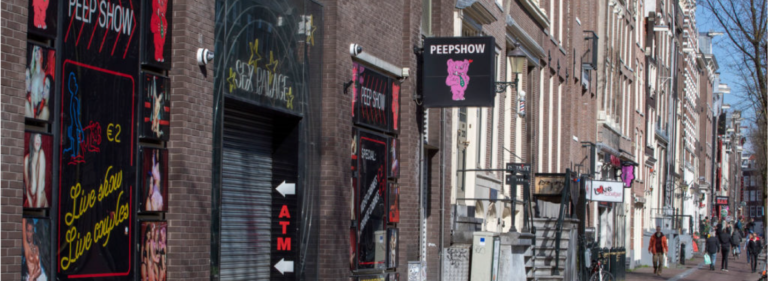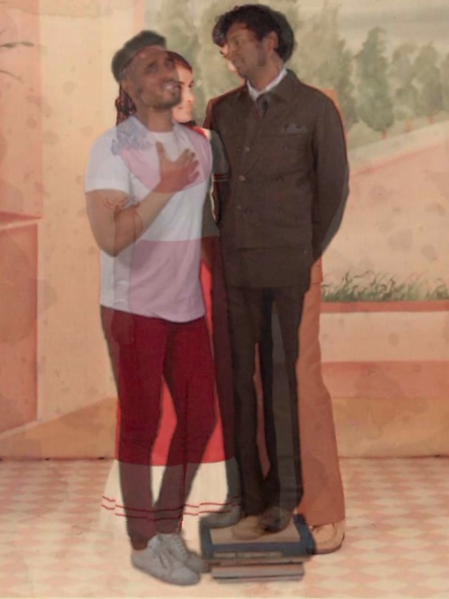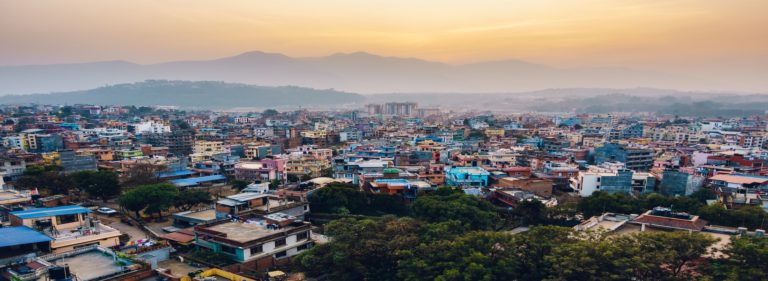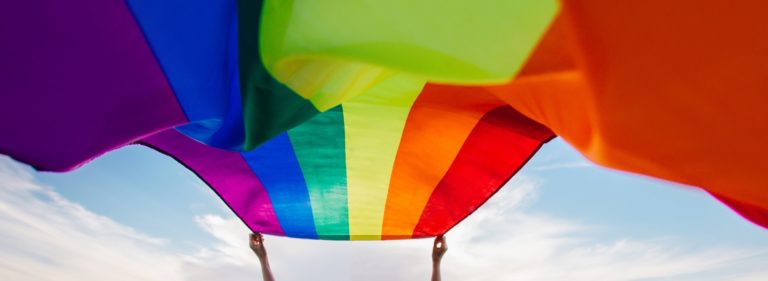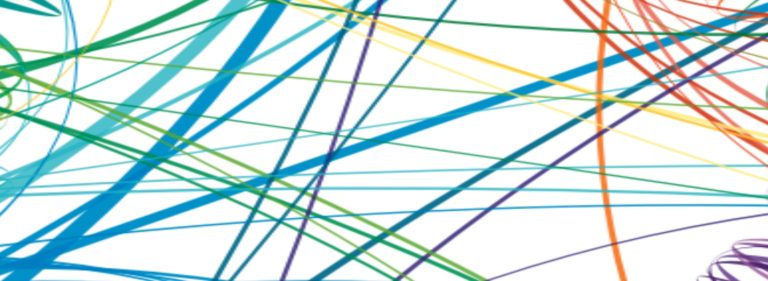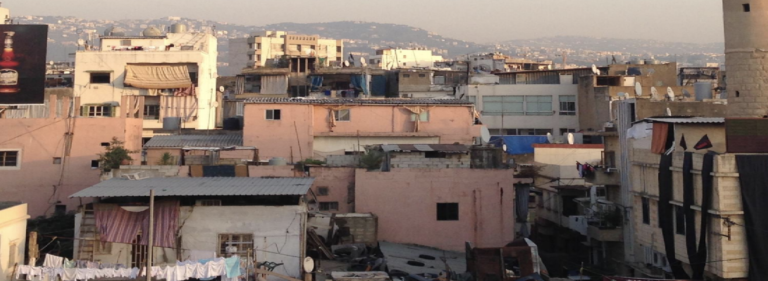Sexual and gender minorities experience humanitarian processes and crises differently. There are a number of elements and humanitarian processes that affect the inclusiveness of sexual and gender minorities. Some of these that are discussed are legal status, self-identification, gender binary and religion. These and a variety of other key elements play a role in the discrimination, violence and exclusion of sexual and gender minorities at all levels. While the needs of gender and sexual minorities remains in the “too-hard” category, there is an urgent need to shift these needs into a “possible” category. It is recommended that the humanitarian program cycle actively participates in enforcing inclusion of sexual and gender minorities and their specific needs in order to succeed in creating a more inclusive agenda. This must include active inclusiveness at all levels such as preparedness, planning, implementation and monitoring, needs assessment and analysis, resource mobilisation and evaluation and learning. This practice paper makes the recommendation that inclusion at all levels of the humanitarian process will pave the way for a more inclusive humanitarian field.
Sex Workers Struggle to Survive Covid-19 Pandemic: Criminalisation Makes a Bad Situation Worse
In the context of covid-19, there are an array of challenges that coronavirus presents for sex workers. Not only are sex workers more exposed to contracting the virus, they are also more vulnerable to economic hardship due to the closure of clubs and establishments under strict quarantine laws. Amidst the outbreak of covid-19, sex work remains criminalised in many European countries, with many sex-workers forced to work within the informal economy, it becomes impossible for these workers to receive any form of government incentives to assist with the economic hardship of covid-19.
The article further notes that many sex workers are in fact amongst already marginalised populations, diverse SOGIESC sex workers face further hardship in the period of covid-19 having often being ostracised from their families due to homophobia. Furthermore, with economic hardship caused by covid-19, more people will turn to selling sex as a source of income. The article calls for governments to reconsider their current arrests, prosecutions and raids of sex work, and instead work closely with members of the sex work industry to generate meaningful programmes for economic development. In a time of economic hardship it becomes more pressing than ever to address the human rights, safety and protection of sex workers. This article calls for the decriminalisation of sex work, as it will help protect sex workers from violence and further stigmatization.
Rescue and Real Love: Same-sex Desire in International Development
This briefing note discusses the shifts in recognition of sexual diversity in development over the past 15 years. Gosine outlines some of the pressing challenges facing the rise in recognition of sexual diversity in development and the importance of understanding these challenges, critiquing the existing structure and how the development field can restore the humanity in the world’s population of “the poor.”
The briefing note begins with a consideration of the ‘rescue’ narrative surrounding sexual and gender diversity in the Global South. Gosine asks what underlies NGO’s of the Global North to “rescue” the diverse sexual communities of the Global South and draws parallels between the nexus that exists between the global North and South.
Gosine then discusses that while portrayals of sexual and gender diversity in popular tv and film has increased in the Global South, these portrayals reinforce existing narratives around wealth, poverty, and sexual orientatoin.
The briefing note concludes with a call for more complexity in the recognition and discussion of sexual diversity in the Global South.
Same-sex Sexualities, Gender Variance, Economy and Livelihood in Nepal: Exclusions, Subjectivity and Development
This article draws upon the work of, inter alia, the Williams Institute, Rankin and Chambers in its argument that socioeconomic disadvantage is not linear for people who identify as part of a sexual and/or gender identity. Early age experiences in school (bullying, stigma, sense of ‘being different) and in family life were pivotal points in interviewees’ economic journeys. Negative experiences in early life were sometimes correlated with decreased economic opportunities as students dropped out of school. Conversely, gender and sexual differences were also associated with increased economic opportunities: as individuals were ‘freed’ from the confines of family-imposed gender roles (as a result of being disowned or moving away from biological family), they were able to engage in non-normative income generating activities. For instance, working in the NGO sector and certain private sector industries.
The article points to the advances in legal provisions for gender and sexual difference in Nepal (namely the ability of transgender or nonbinary persons to select ‘other’ as their gender on official government documentation), but also points to the deeply engrained social biases that hinder the advancement of sexual and gender minority rights.
The report concludes by offering several recommendations. All of these recommendations focus on the need for holistic approaches that instigate systemic change and tackle the underlying factors of economic disadvantage.
A/74/181: Report of the Independent Expert on protection against violence and discrimination based on sexual orientation and gender identity
The IE’s report presents the findings of an investigation—made up of a stakeholder consultation which elicited more than 50 submissions from Member States, civil society organisations, national human rights institutions, academics and one UN agency and a public consultation—into sexual orientation and gender identity (SOGI) motivated violence and discrimination globally.
The report is guided by the twin mandates of dialogue and intersectionality. The report covers the following sectors: education; employment; housing; health; religion; public spaces; political and public discourse; and backlash in the face of ultraconservative and ultranationalist groups. The overall findings are that SOGI-based discrimination is widespread and supported through political, religious and ‘traditional leaders’; the business sector and the media. The report provides some examples of intersectionality such as the ways in which misogyny, patriarchy and gender inequalities in combination with gender binarism specifically marginalise lesbian, bisexual, trans and gender diverse women; the ways disasters and crisis impact the lives of people with diverse SOGIE; and the ways diverse SOGIE can compound the marginalisation experienced by people living with disabilities, among other intersections. The report then discusses political participation and inclusion, among other topics, as tools to lessen the discrimination and violence for people with diverse SOGI.
The report concludes that violence and discrimination on the basis of sexual orientation and gender identity are perpetrated in a wide variety of public and private settings against LGBT persons. The report provides recommendations for reducing violence and increasing inclusion and safety and security of LGBT persons. Overall, the report found that people with diverse sexual orientation and gender identity and expression experience heightened violence and discrimination than heterosexual and cisgendered persons.
Refugees Don’t Drink Wine, But Gay Men Should: Exploring the Intersections of Refugeehood, Sexuality and Nationality among Gay Syrian Refugees in Lebanon
This master’s thesis explores the intersections between nationhood, sexual orientation, gender, refugee status and location through the case study of five self-identified gay Syrian men living as refugees or otherwise displaced persons in Beirut, Lebanon. The author seeks to answer how gay Syrian refugees in Lebanon interact with various forms and regimes of power; the intersections of refugeehood, sexuality and nationality at determinants of positionality; and the ways in which these intersections play into regimes of oppression and resistance.
The author outlines his research purpose (to shed light into what it means to be gay, Syrian and a refugee in Lebanon), provides an overview of the socio-historical context of the perceptions and receptions of Syrians and refugees in Lebanon, paying specific attention to the knowledge (or lack there of) of experiences and circumstances of diverse SOGI refugees, an explanation of his methodology, and, finally, presentation of findings.
Profiles of each of the five participants are presented along with brief lifestories as well as the details of their refugee status: some participants are not registered as refugees but living as temporarily displaced persons. Their motivations are explored (seeking employment, the impacts of the war, avoiding military service and moving away from a homophobic and dangerous environment to a more permissive one) and their hopes and perceptions of the future are detailed.
The difficulty of being non-heterosexual and Syrian in Lebanon–including the challenges in UN labels–is the central focus of this paper. The thesis concludes with statements on the ‘advancement of generalised homonationalist projects,; the need for wider discussion on the ways in which global understandings of sexuality affect Middle Eastern mobilities, and how the UNHCR acts as a global mediator to strengthen sovereign borders.
Refugee Claims Based on Sexual Orientation and Sexual Identity: An Annotated Bibliography
This annotated bibliography provides two categories of research:
- Resources on LGBTI asylum seekers and refugees and the refugee determination process
- Reports and resources from international, inter-governmental and non-governmental organisations on LGBTI asylum seekers and refugees
The document provides citations and a descriptive paragraph on the content matter of each resource. The document also provides a geographical classification of each source with a focus on specific countries and regions.
Migration, Mobility and Marginalisation: Consequences for Sexual and Gender Minorities
Migration can provide individuals a sense of liberation from experiences of marginalisation and discrimination, it can open economic opportunities for individuals and families, and it can similarly bring to surface issues of violence and discrimination to vulnerable minorities. This report provides an overview of the effects of forced migration and strategic migration on sexual and gender minorities. Furthermore, provides a powerful policy recommendation based on the issues surrounding migration and sexual and gender minorities.
Forced Migration
Forced migration might occur when economic migrants, refugees or asylum seekers are forced to migrate for reasons of safety, greater livelihoods and economic. For gender and sexual minorities, migration comes with a complexity of issues that has vast implications on safety, livelihoods and wellbeing. This report provides an overview of the complexity of the issues associated with migration for gender and sexual minorities and how these issues may impact their lives.
Strategic Migration
There are a number of reasons in which gender and sexual minorities may choose to migrate, for example gaining family acceptance through economic pursuit and sexual liberation. While strategic migration can provide gender and sexual minorities a sense of opportunity, it can arise many issues such as discrimination and violence, Furthermore, many individuals living in poverty find themselves strategically migrating in order to engage in sex work. This report critically outlines some of the associated risks for gender and sexually diverse individuals who either strategically or forcibly migrate, and provides policy recommendations in order to create a more inclusive agenda and address some of these pressing issues in which sexual and gender minorities face.
No Rainbow, No Integration: LGBTQI+ Refugees in Hiding
The LGBTQI+ Syrian refugee community in Lebanon faces multiple forms of oppression and discrimination as a result of their refugee status, sexual orientation and gender identity and expression. Through conversations with the LGBTQI+ Syrian refugee community in Beirut, the author (a member of the LGBTQI+ refugee community) details the challenges this cohort faces as a result of their sexual orientation, gender identity and expression. It should be noted that the authors do not consistently nor accurately represent their interviewees’ gender identities.
The report provides an overview of the challenges Syrian refugees face in general, including legal obstacles that have caused Syrians to lose legal status in Beirut; education challenges associated with linguistic, transportation and administrative barriers; security concerns around Syrians being barred entry to Lebanon and an increase in violent attacks on refugees; and health care challenges. These challenges are applicable to all Syrian refugees in Lebanon.
The author then explores the barriers that are specific to or experienced more severely by LGBTQI+ Syrian refugees in Lebanon. The author profiles several individual refugees who belong to the LGBTQI+ community in Beirut, highlighting their pre-refugee experience as well as experiences as refugees in Beirut. Many LGBTQI+ refugees experience violence or threats of violence from their friends and family in Syria and escaped to Lebanon out of fear for their safety and security. The profiles highlight the precarity of employment and shelter for LGBTQI+ refugees, especially those for whom possess identification that does not match their gender identity or expression, and the challenges of seeking employment while registered as a refugee. Survival sex and marriage for security are recurrent themes.
The author summarises the emergent themes: Syrian refugees are, in general, exploited or taken advantage of because they lack legal protection and face discrimination from their host communities. LGBTQI+ Syrian refugees feel this discrimination acutely, and are even more vulnerable to exploitation. All refugees with whom the author spoke have lost all contact with their families, a usually vital source of support for refugees. Finally, all LGBTQI+ refugees interviewed for this report view their gender identity and expression or/and sexual orientation as a ‘barrier to wellbeing and integration,’ and none of the respondents had positive or sustainable solutions to life in Lebanon. Survival sex and associated psychological and psychical illnesses were common. The centrality of NGOs and small, socially progressive communities where LGBTQI+ refugees can access services was the only bright spot for many of these refugees.
Queer (Im)mobilities and the ‘Refugee Crisis’: Examining Stakeholder Responses to Sexual Minority Refugees in Turkey
This article examines the ways various institutions in Turkey are engaging with sexual and gender minority refugees who have been displaced as part of the refugee crisis. The article first examines the discursive representations of queer and LGBTQ refugees and the impact of these representations on global and local responses to sexual minority displacement in Turkey.
The author argues that while attempts to mainstream diverse SOGI protection strategies is needed and important, more research is needed into the safest and most effective ways to do so. The Turkish case study demonstrates that attempts to mainstream may inadvertently further exclude or put queer displaced persons at greater risk. The article highlights the dearth of research in this area and presents conceptual tools that may enable international actors to better engage with and respond to sexual minority refugees.





